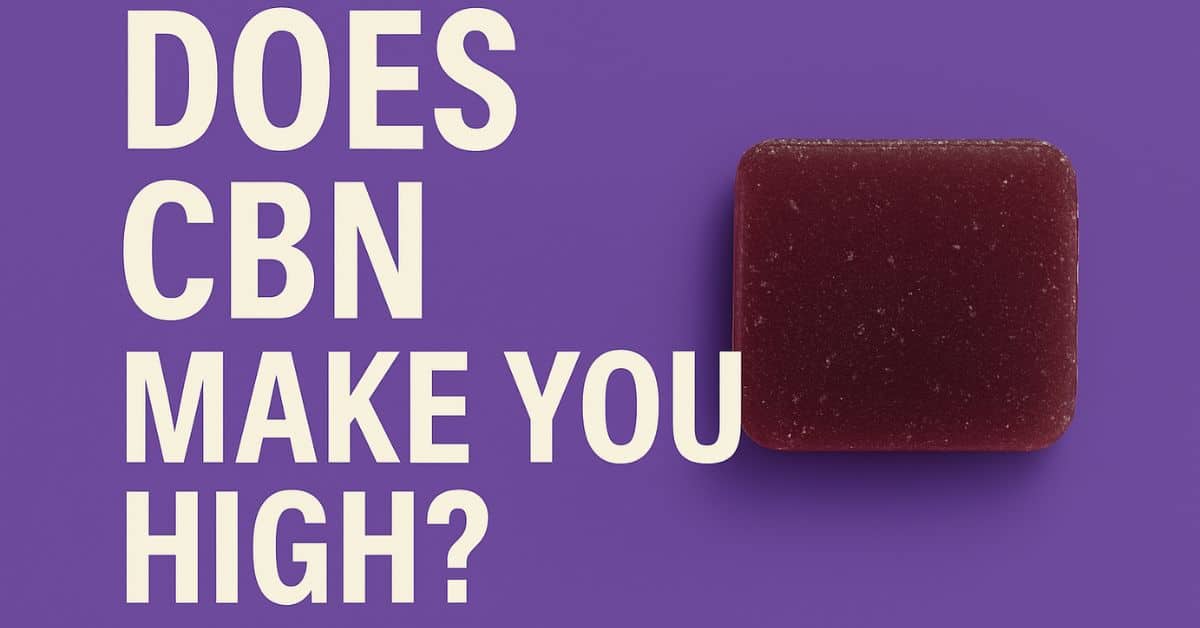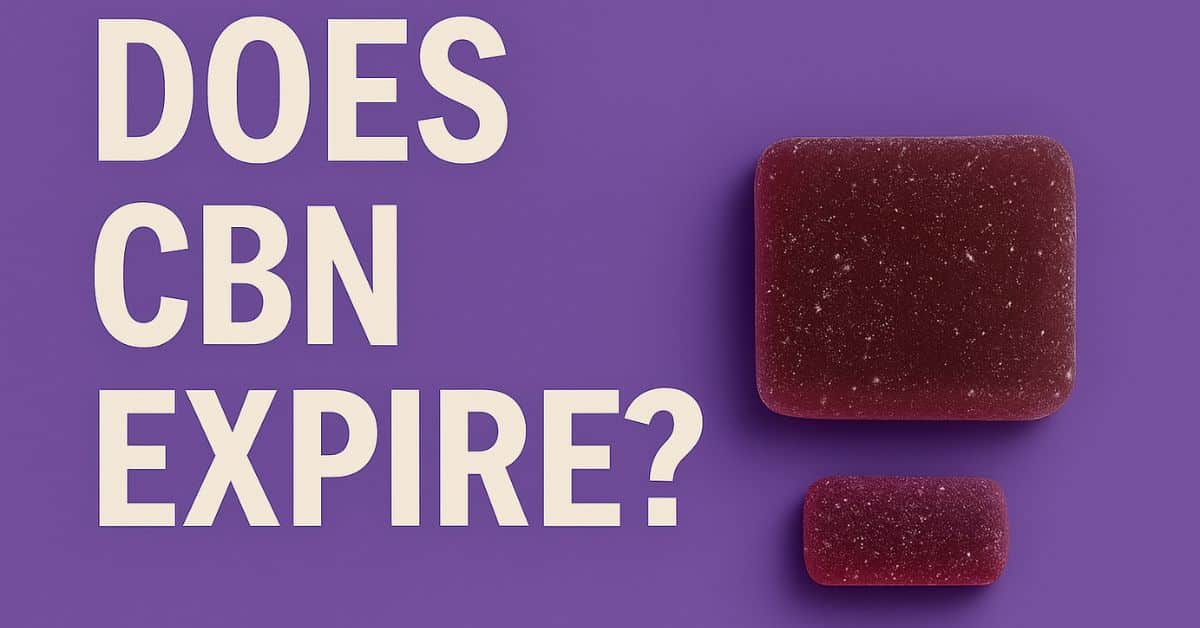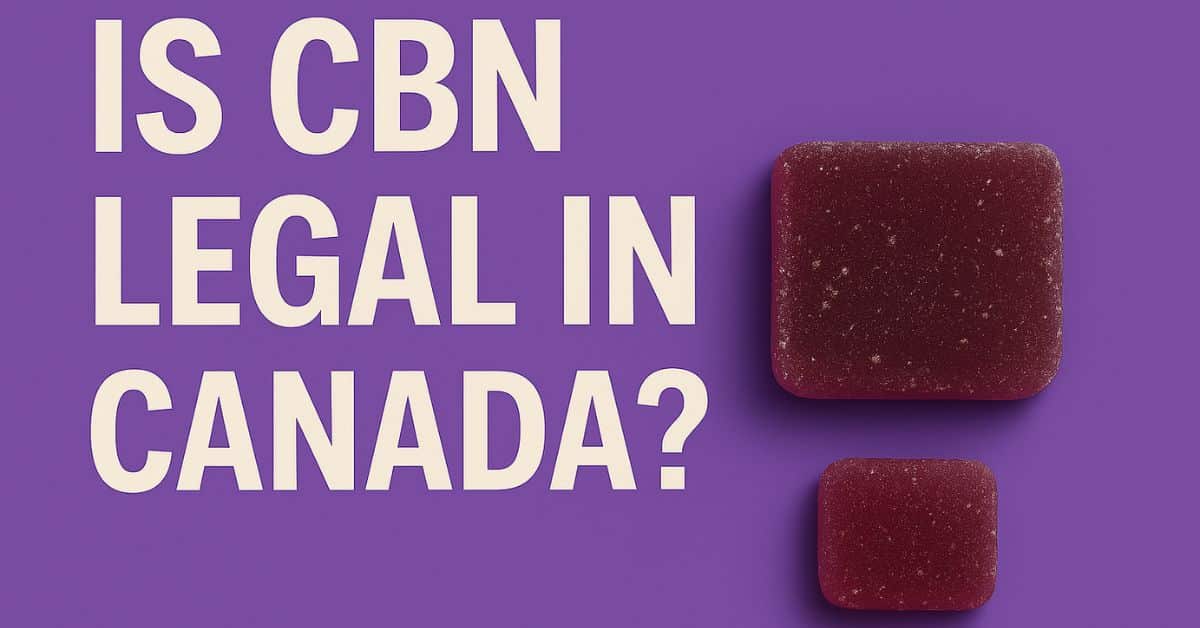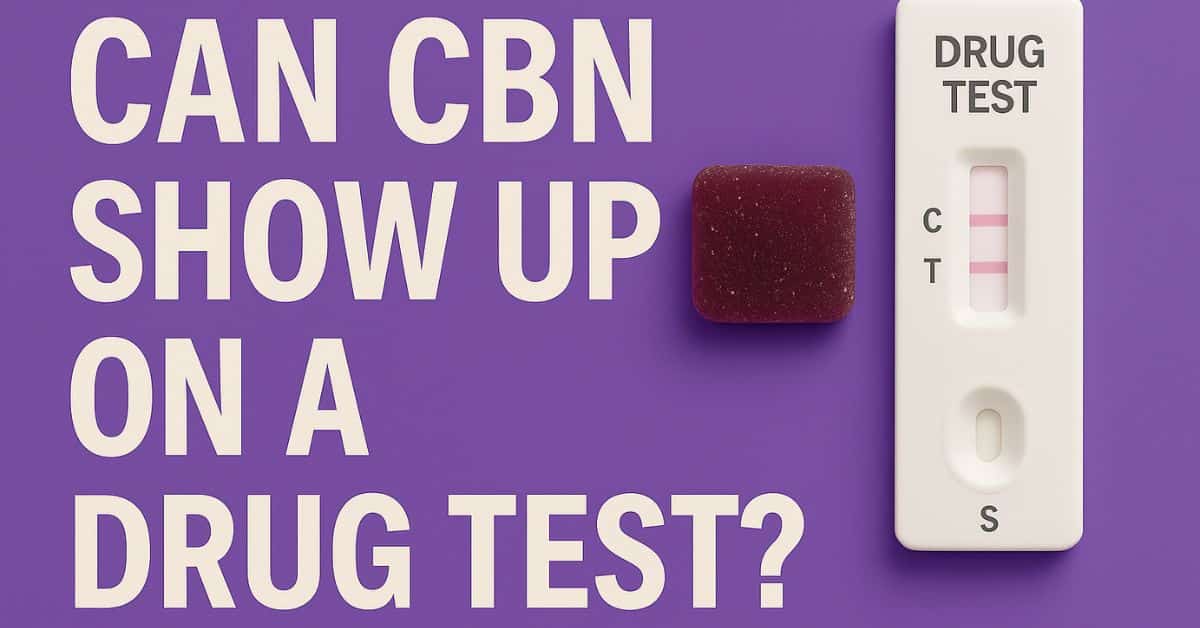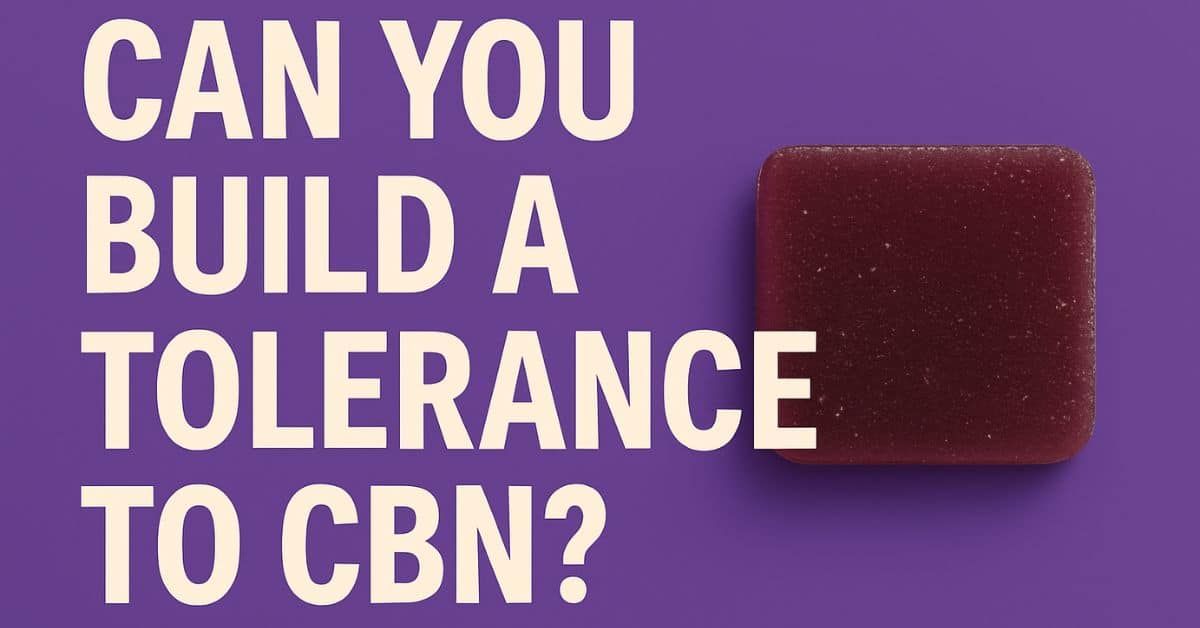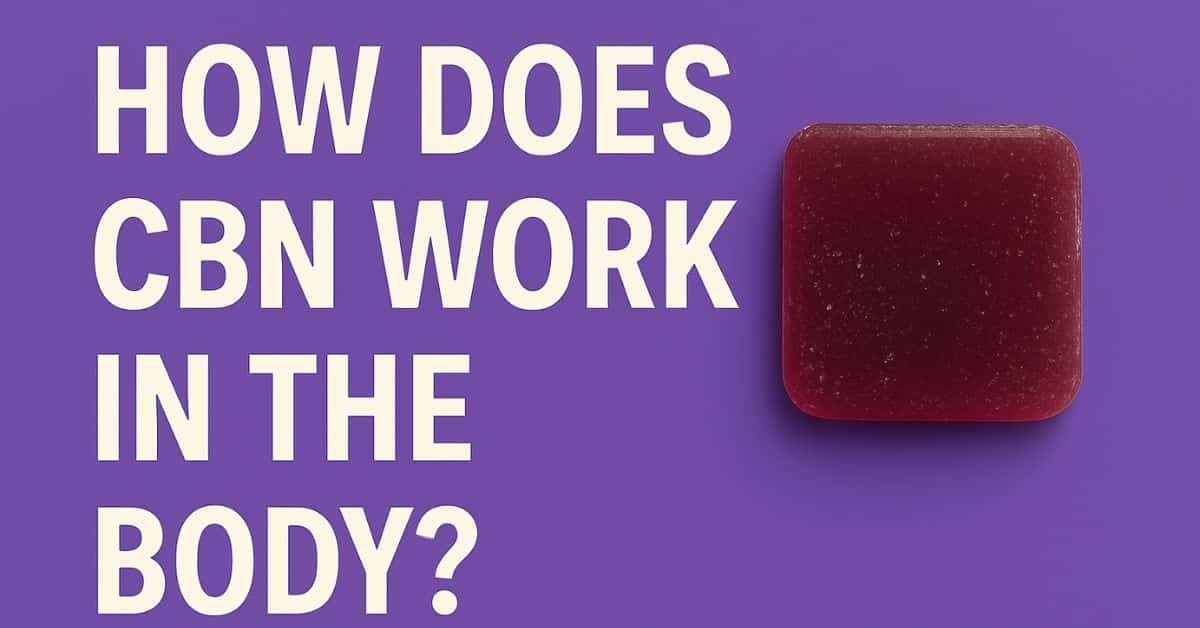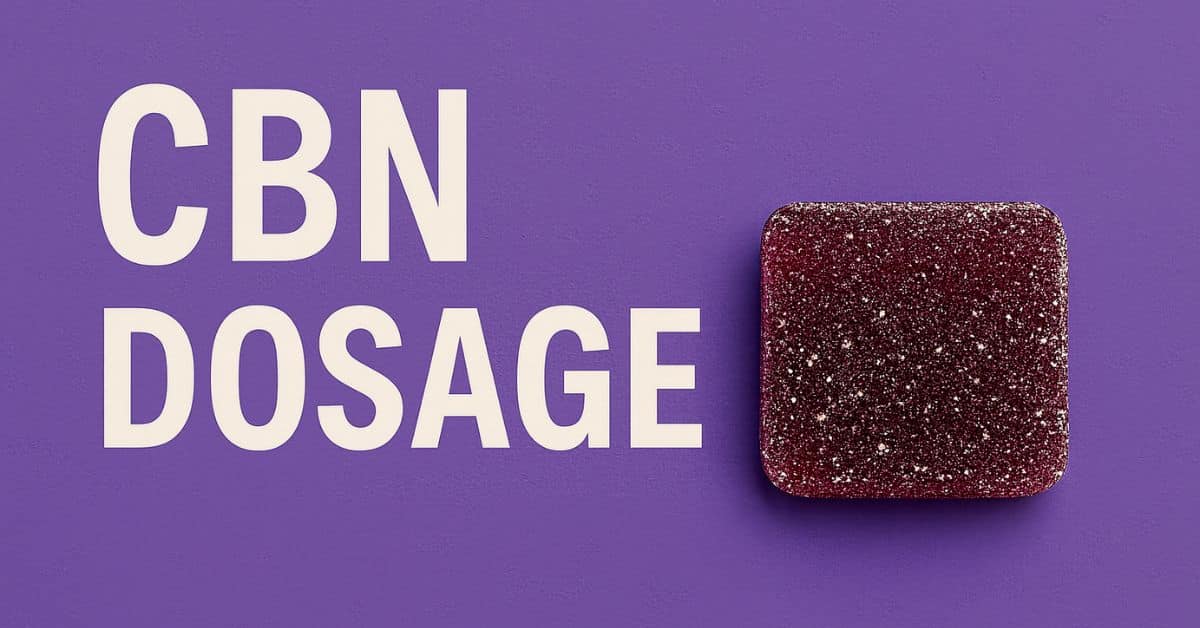No, CBN does not make you high in the way THC does. While both cannabinoids come from the cannabis plant, CBN is only mildly psychoactive at best and does not produce the euphoric or intoxicating effects commonly associated with THC. Instead, most people describe CBN as having a calming, sedative-like influence, which is why it’s often included in sleep or relaxation products.
CBN forms when THC ages and oxidizes, which is why older cannabis plants tend to contain higher levels of it.
Even though it shares a chemical connection with THC, its interaction with the brain’s CB1 receptors is far weaker, meaning you won’t experience the same kind of “high.”
What is CBN?
Cannabinol, or CBN, is a naturally occurring cannabinoid that develops when THC (tetrahydrocannabinol) breaks down through oxidation. This means older cannabis plants often contain higher amounts of CBN compared to freshly harvested ones. Unlike THC, CBN is only mildly psychoactive and is best known for its potential relaxing and sedative-like effects.
Does CBN Make You High?
No, CBN does not make you high like THC. While CBN is considered mildly psychoactive, the effects are so subtle that most users never experience intoxication. Instead of euphoria, heightened senses, or impairment, CBN is typically associated with a gentle calming effect that may support sleep and relaxation.
The reason for this difference lies in how CBN interacts with the body’s endocannabinoid system. Unlike THC, which strongly binds to the CB1 receptors in the brain to produce its intoxicating effects, CBN binds very weakly. This means it doesn’t trigger the same strong signals that cause the feeling of being “high.”
How CBN Compares to THC
Even though CBN and THC are chemically related, their effects on the body and mind are very different.
- Legal and consumer appeal: Because CBN doesn’t produce the same intoxicating effects, it appeals to Canadians who want to explore cannabinoids for wellness without the risks of impairment.
- Receptor binding: THC strongly binds to the CB1 receptors in the brain, which is what creates the classic cannabis “high.” CBN, on the other hand, binds weakly to those same receptors, so it doesn’t cause the same euphoric or intoxicating effects.
- Level of psychoactivity: THC is highly psychoactive, while CBN is considered only mildly psychoactive at most. In practice, most users won’t feel “high” from CBN, even at higher doses.
- Effects: THC often produces a mix of euphoria, altered perception, and sometimes anxiety or paranoia. CBN is more often linked with relaxation, sedation, and calmness, making it popular in sleep-focused products.
How CBN Compares to CBD
CBN and CBD are often mentioned together because neither produces the strong intoxication that THC does. However, there are some important differences:
- Psychoactivity: CBD is completely non-psychoactive, meaning it doesn’t cause any mind-altering effects. CBN is considered mildly psychoactive, but its effects are so weak that most users experience it as calming rather than intoxicating.
- Primary uses: CBD is widely used for stress relief, inflammation, anxiety, and general wellness. CBN, on the other hand, is most often sought out for sleep support and relaxation.
- Research: CBD has been studied far more extensively, with a large body of research behind it. CBN is still considered a “minor cannabinoid,” and research into its potential benefits is only beginning to grow.
- Consumer experience: While CBD tends to leave people feeling balanced or clear-headed, CBN may feel more sedating, making it better suited for nighttime use.
Potential Benefits of CBN Without the High
One of the main reasons Canadians are exploring CBN is that it may offer wellness benefits without intoxication. While research is still in its early stages, CBN has been linked to several potential uses:
- Sleep support – CBN is often marketed as a natural option for better rest. Many users report a more relaxed state that makes it easier to fall asleep.
- Relaxation and stress relief – Its calming properties may help ease tension without the mind-altering effects of THC.
- Recovery and wellness – Some Canadians use CBN products after long days or workouts to encourage rest and recovery.
- Complement to CBD – In products that blend CBD and CBN, consumers often experience balanced effects — CBD for stress and inflammation, CBN for calmness and sleep.
Bottom Line
No, CBN does not make you high like THC. While it is considered only mildly psychoactive, its effects are far too weak to cause intoxication. Instead, most people describe CBN as calming or sedative, which is why it’s commonly included in sleep-focused cannabis products.
For Canadians looking to explore cannabinoids without the risk of impairment, CBN offers a unique option — one that may promote relaxation, rest, and recovery without altering your state of mind. As research continues, its role as a non-intoxicating alternative to THC is likely to grow in popularity.
FAQ
No, CBN does not typically produce a psychoactive high like THC. It has mild sedative effects but does not alter perception or cognition significantly.
No, CBN binds weakly to cannabinoid receptors responsible for intoxication and does not cause the typical “high” associated with THC.
Yes, CBN is legal in Canada when sold through licensed cannabis retailers and must meet regulatory standards for safety and labeling.
Start with a low dose, follow product guidelines, and consult with a healthcare provider if you have medical conditions or take other medications.
THC produces a strong psychoactive high affecting mood and perception, while CBN mainly causes mild sedation and relaxation without intoxication.

